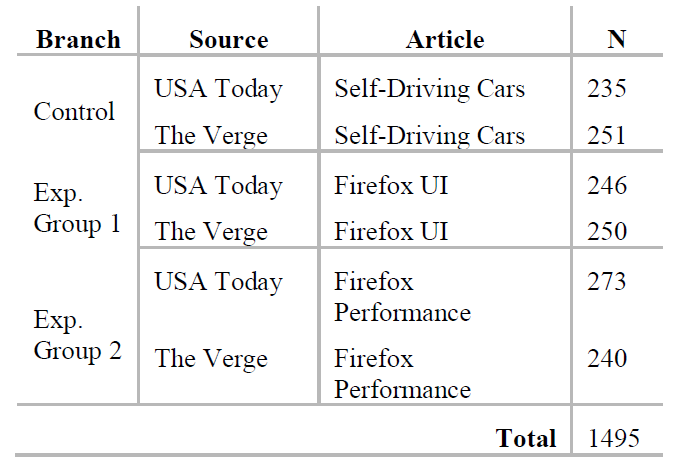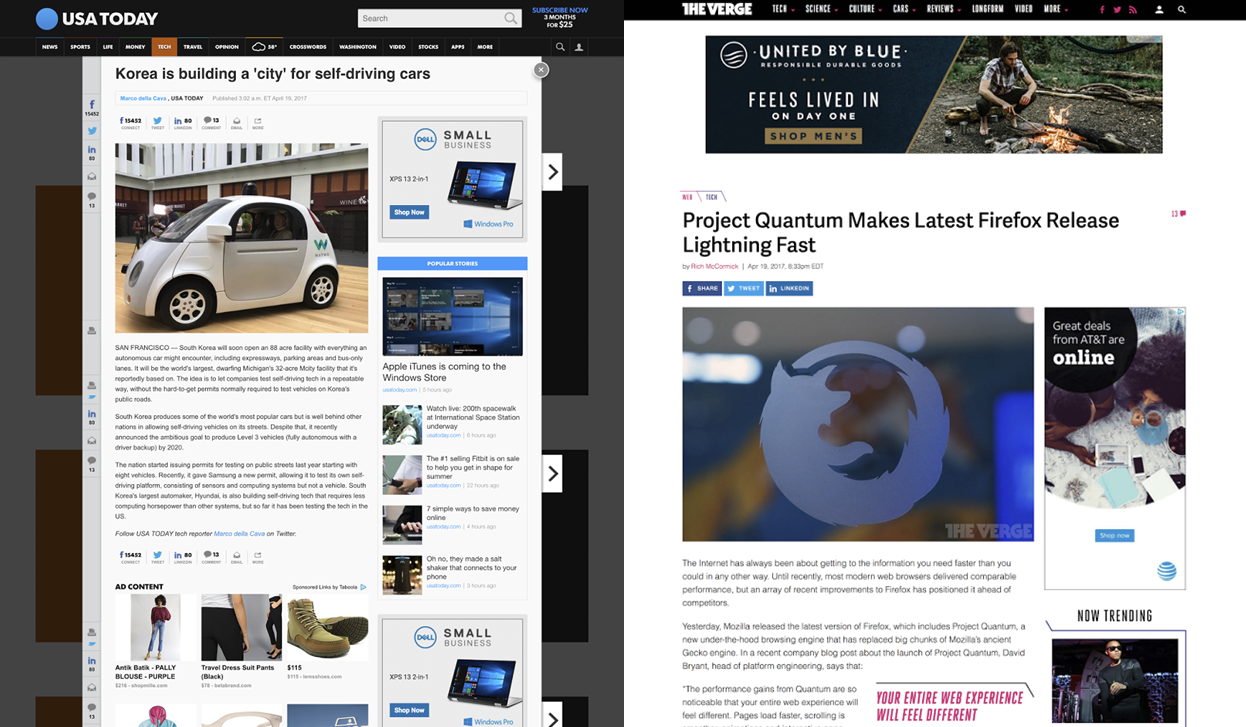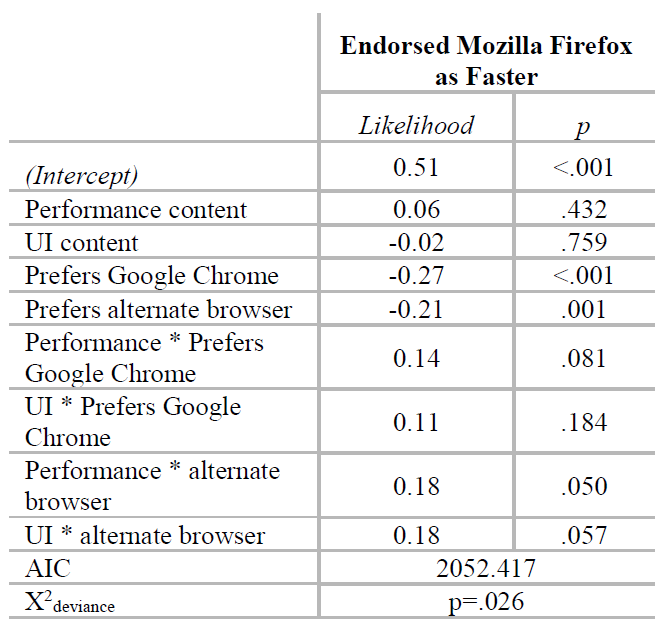“This Browser is Lightning Fast”: The Effects of Message Content on Perceived Performance
With technical performance being similar for various web browsers, improving user perceived performance is integral to optimizing browser quality. We investigated the importance of priming, which has a well-documented ability to affect people’s beliefs, on users’ perceptions of web browser performance.

Methodology
We used a between-subjects design and manipulated the article content (Self-Driving Cars, Firefox UI, Firefox Performance) and article source (USA Today, The Verge). Each participant experienced one of the six combinations of article content and source. A breakdown of our design and the number of participants in each branch can be seen in the table below.

Demographic screening criteria based on Pew’s omnibus Internet survey were used to ensure a diverse, demographically representative sample of United States Internet users.
Participants answered questions about technological experience and behavior before reading one of the three articles from one of the two sources and rating its credibility.

Main Findings
Google Chrome is deemed fastest by default.
• Expected given Google’s prevalence in the advertising sector, coverage in the mainstream media and its primary marketing message that Chrome is “a faster browser”

• Engaging with the media to present software as high-performing is an important step in influencing users’ perceptions of that browser

• Priming users about software’s performance is an integral piece of overall perceived performance that must be considered by developers, and it also presents a potential opportunity for smaller companies to compete with large companies that have an established brand

Recommendations
In demonstrating that reading priming messages about Mozilla Firefox can improve users’ perceived performance of Firefox over Google Chrome, we demonstrate a potential opportunity for smaller companies to compete against large companies with an established brand
Particular curated content is more effective than general agenda setting, as the message regarding performance improvements resulted in more endorsement of Firefox as faster than the message about UI updates
Designers and developers must consider the presentation of their software in the media when trying to improve perceived performance
